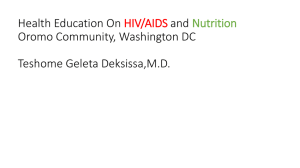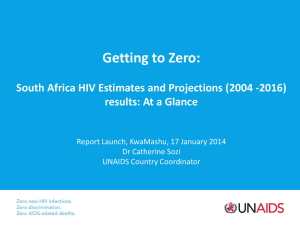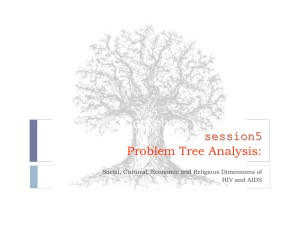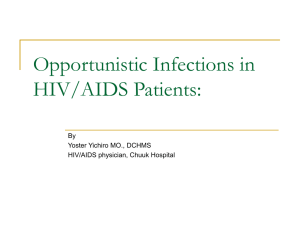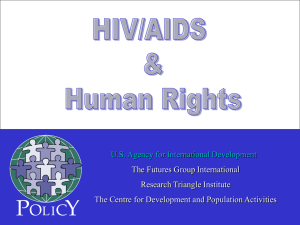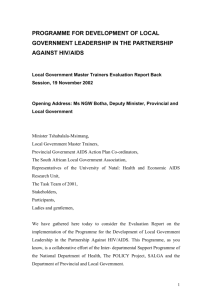The implications of HIV and Aids on municipal governance
advertisement
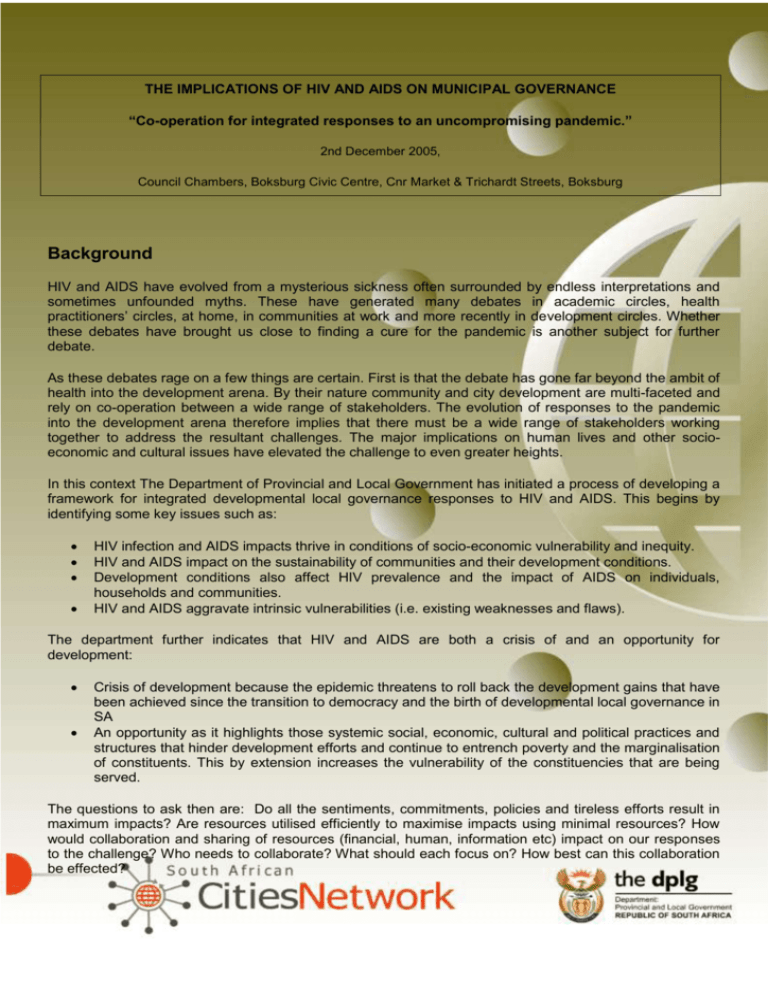
THE IMPLICATIONS OF HIV AND AIDS ON MUNICIPAL GOVERNANCE “Co-operation for integrated responses to an uncompromising pandemic.” 2nd December 2005, Council Chambers, Boksburg Civic Centre, Cnr Market & Trichardt Streets, Boksburg Background HIV and AIDS have evolved from a mysterious sickness often surrounded by endless interpretations and sometimes unfounded myths. These have generated many debates in academic circles, health practitioners’ circles, at home, in communities at work and more recently in development circles. Whether these debates have brought us close to finding a cure for the pandemic is another subject for further debate. As these debates rage on a few things are certain. First is that the debate has gone far beyond the ambit of health into the development arena. By their nature community and city development are multi-faceted and rely on co-operation between a wide range of stakeholders. The evolution of responses to the pandemic into the development arena therefore implies that there must be a wide range of stakeholders working together to address the resultant challenges. The major implications on human lives and other socioeconomic and cultural issues have elevated the challenge to even greater heights. In this context The Department of Provincial and Local Government has initiated a process of developing a framework for integrated developmental local governance responses to HIV and AIDS. This begins by identifying some key issues such as: HIV infection and AIDS impacts thrive in conditions of socio-economic vulnerability and inequity. HIV and AIDS impact on the sustainability of communities and their development conditions. Development conditions also affect HIV prevalence and the impact of AIDS on individuals, households and communities. HIV and AIDS aggravate intrinsic vulnerabilities (i.e. existing weaknesses and flaws). The department further indicates that HIV and AIDS are both a crisis of and an opportunity for development: Crisis of development because the epidemic threatens to roll back the development gains that have been achieved since the transition to democracy and the birth of developmental local governance in SA An opportunity as it highlights those systemic social, economic, cultural and political practices and structures that hinder development efforts and continue to entrench poverty and the marginalisation of constituents. This by extension increases the vulnerability of the constituencies that are being served. The questions to ask then are: Do all the sentiments, commitments, policies and tireless efforts result in maximum impacts? Are resources utilised efficiently to maximise impacts using minimal resources? How would collaboration and sharing of resources (financial, human, information etc) impact on our responses to the challenge? Who needs to collaborate? What should each focus on? How best can this collaboration be effected? Objectives Based on the challenges outlined above and the mandates of SACN to facilitate shared learning and to provide information that enables member cities and other stakeholders to develop and enhance their strategic planning the main objectives of this seminar are: To demonstrate the importance of an integrated response to HIV and AIDS and collaboration to achieve this Highlight some specific developmental issues that need to be addressed by municipalities in their responses to the pandemic Share experiences and knowledge on best practices, opportunities and challenges with selected municipalities Explore roles and responsibilities of various stakeholders that need to co-operate in the fight against the pandemic Launch an electronic support system that municipalities and other stakeholders can utilize in developing their respective strategies and sharing experiences, knowledge and information. Participants The main participants in the seminar will be: Municipal employees tasked with the responsibility of overall planning and coordination of municipal responses to HIV and AIDS, including IDP managers Municipal employees tasked with the responsibility of implementing specific aspects of the municipalities’ responses. Department of provincial and local government Department of health HIV and AIDS coordinators in Provincial departments of Local Government. Provincial IDP coordinators Provincial AIDS councils South African Local Governments Association. Other local provincial and national stakeholders working on HIV and AIDS. Research institutions conducting or intending to conduct research in developmental aspects of HIV and AIDS
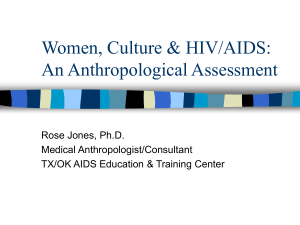
![Africa on the rise - Health[e]Foundation](http://s2.studylib.net/store/data/005761249_1-4e2609b64b2c374f99ff6e9dbe45edb8-300x300.png)
